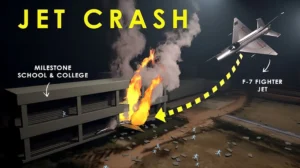The Pager Explosive Attack in Lebanon September 2024!
How the Pager Explosive Attack in Lebanon Happened: A Detailed Analysis
Lebanon’s geopolitical landscape has long been influenced by the complex interplay of local factions, regional powers, and international interests. One of the latest incidents to draw attention in this tumultuous environment is the “Pager Explosive Attack,” an event that sent ripples across the region, raising alarms from Lebanon to Israel, Hezbollah, and beyond. As tensions escalate between Israel and Hezbollah, understanding the mechanics and motivations behind such attacks becomes critical to deciphering the broader conflict.
The Context: Israel and Hezbollah’s Strained Relationship
To comprehend the significance of the Pager Explosive Attack, it is important to first grasp the underlying tensions between Hezbollah and Israel, which have persisted for decades. Hezbollah, a Lebanese Shiite militant group backed by Iran, has been engaged in a long-standing conflict with Israel, rooted in territorial disputes, ideological differences, and regional power struggles. This antagonism dates back to Hezbollah’s formation in the 1980s and its role in the Israeli-Lebanese conflict, especially after Israel’s occupation of southern Lebanon, which ended in 2000.
Though there have been periods of relative calm, these have been punctuated by high-profile clashes, most notably the 2006 Lebanon War, when Hezbollah and Israeli forces engaged in a bloody month-long conflict. In recent years, Hezbollah has shifted some of its focus toward supporting the Assad regime in Syria during the Syrian Civil War, but the threat of conflict with Israel has never fully disappeared. Amidst this ever-tense backdrop, small-scale skirmishes, border clashes, and isolated attacks have continued.
What Is the Pager Explosive Attack?
The Pager Explosive Attack refers to an incident where a covert explosive device, hidden within a pager, was detonated in a specific location in southern Lebanon, a region known for frequent clashes between Hezbollah and Israeli forces. The attack, which took place in late 2023, targeted a prominent Hezbollah military official. The device, ingeniously hidden within what appeared to be an innocuous communication tool, killed the Hezbollah officer on the spot and wounded several others.
The sophisticated nature of the attack has led many to speculate that it was carried out by an external entity, with Israel being the primary suspect. Given Israel’s history of employing similar covert tactics against Hezbollah operatives, it is not surprising that Hezbollah and its allies immediately pointed fingers at Israeli intelligence services.
How Did the Attack Happen?
Reports indicate that the explosive device was meticulously placed within a pager, a piece of communication equipment still used by Hezbollah officials for secure messaging, given the vulnerabilities associated with more modern technologies like smartphones. The pager had been tampered with to include a small but highly destructive explosive charge, which detonated upon usage. The targeted Hezbollah officer, believing the pager to be safe, used it as part of his regular communication duties, unaware of the lurking danger.
This level of sophistication points to a well-organized intelligence operation. Not only would the attacker need precise information about the Hezbollah officer’s movements and routines, but they would also have to gain access to his equipment and modify it without raising suspicion. Given these complexities, it is unlikely that this was the work of an amateur or a local faction. The precision and planning involved suggest the involvement of a state actor with access to advanced technological capabilities and deep intelligence networks – further fueling suspicions of Israeli involvement.
Israel’s History of Covert Operations
Israel has a well-documented history of conducting targeted assassinations, sabotage missions, and intelligence-gathering operations against Hezbollah and other adversaries in the region. The Mossad, Israel’s external intelligence agency, is particularly known for its ability to carry out highly secretive and effective operations across the Middle East.
In previous years, Mossad has been linked to the assassination of key figures in both Hezbollah and Iran’s Revolutionary Guard Corps (IRGC), most notably through the use of car bombs, booby-trapped communication devices, and drone strikes. One such case occurred in 2008, when Hezbollah’s top military commander, Imad Mughniyeh, was killed in a car bomb explosion in Damascus, Syria – an operation widely attributed to Israeli intelligence, though Israel never officially claimed responsibility.
Given this track record, the Pager Explosive Attack is seen by many as part of Israel’s broader strategy to weaken Hezbollah’s leadership and its military capabilities. While Israel has neither confirmed nor denied involvement in the recent pager attack, many observers see this as consistent with its ongoing policy of preventing Hezbollah from acquiring advanced weapons and technology, particularly from Iran.
Hezbollah’s Response
Following the attack, Hezbollah has vowed retaliation, raising fears of a new round of hostilities between the group and Israel. In a public statement, Hezbollah’s Secretary-General, Hassan Nasrallah, condemned the assassination and declared that Hezbollah would respond “at the right time and place.” Such rhetoric is not uncommon from Hezbollah, which has a history of retaliating against Israeli actions, often in the form of cross-border rocket attacks or commando raids into Israeli territory.
While the immediate response from Hezbollah has been restrained, there is a palpable sense of anticipation that a larger escalation may be in the works. Southern Lebanon, particularly the areas bordering Israel, has seen an increased military presence, and both sides appear to be on high alert. The Lebanese-Israeli border is one of the most militarized regions in the world, and any miscalculation or retaliatory attack could spark a wider conflict.
The Role of Iran
No analysis of the Israel-Hezbollah conflict would be complete without considering the role of Iran, Hezbollah’s primary financial and military backer. Iran has long viewed Hezbollah as a key asset in its strategy to project influence across the Middle East, and it has provided the group with weapons, training, and financial support since its inception.
Iranian leaders have condemned the pager attack, viewing it as part of Israel’s broader campaign to curb Iran’s influence in the region. Tehran has also suggested that the attack is linked to Israel’s ongoing concerns about Hezbollah’s growing missile arsenal, which is believed to include sophisticated guided missiles capable of hitting deep inside Israeli territory.
Given the close ties between Hezbollah and Iran, it is likely that any significant Hezbollah retaliation would have the tacit approval, if not direct coordination, with Tehran. This raises concerns that the Pager Explosive Attack could escalate into a broader regional conflict, particularly if Hezbollah’s response provokes a heavy-handed Israeli military reaction.
Implications for Lebanon
Lebanon, already struggling with severe economic and political crises, is in no position to endure another major military confrontation. The Lebanese state, particularly the Lebanese Armed Forces (LAF), has historically been sidelined in conflicts between Hezbollah and Israel, with Hezbollah operating as a state within a state. However, the consequences of an all-out war would be devastating for the country, potentially displacing thousands, further crippling the economy, and exacerbating Lebanon’s already dire humanitarian situation.
The international community, including the United Nations and key Western powers, has called for restraint from both Hezbollah and Israel, urging both sides to avoid actions that could lead to further escalation. However, with tensions running high and both sides entrenched in their positions, the potential for a larger conflict remains a distinct possibility.
Conclusion: A Prelude to Escalation?
The Pager Explosive Attack in Lebanon serves as a stark reminder of the volatile nature of the Israel-Hezbollah conflict. While the exact details of how the attack was orchestrated remain murky, the sophistication and timing suggest a well-planned operation designed to send a clear message to Hezbollah and its Iranian backers. With both sides now on high alert, the potential for retaliation looms large, raising fears of a broader regional conflict that could draw in other actors, including Iran and Syria.
As the region watches closely, one thing is clear: the Pager Explosive Attack is not an isolated incident, but part of a larger, ongoing struggle between Hezbollah, Israel, and their respective allies. Whether this attack serves as a prelude to further escalation or a brief flare-up in the long-standing conflict will depend on the actions of both parties in the coming weeks and months.












